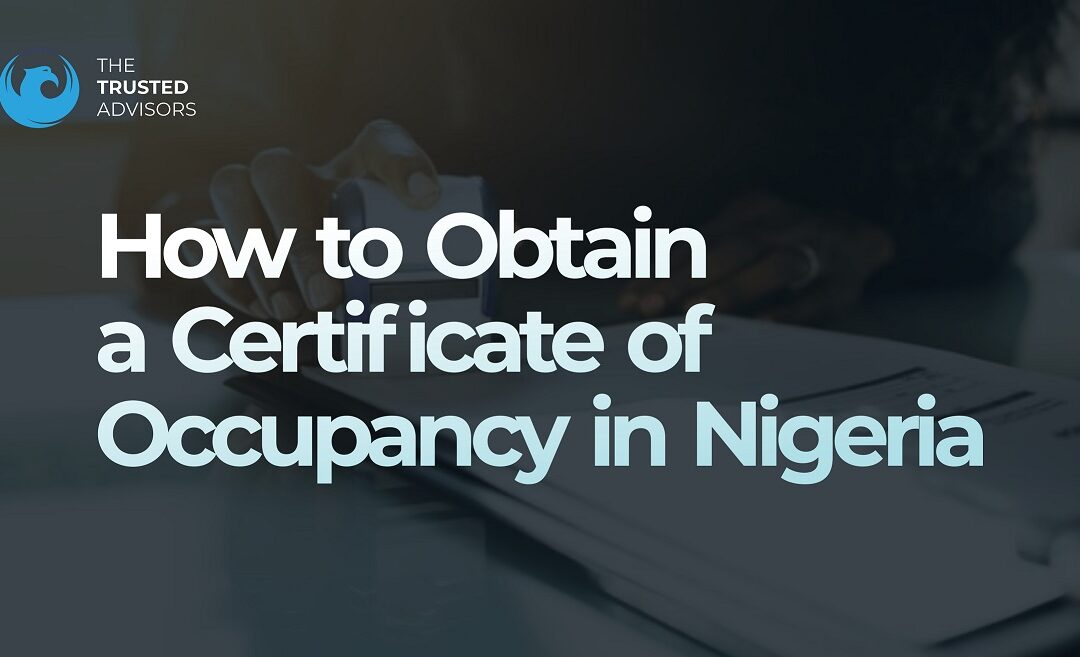
In Nigeria, owning property goes beyond simply buying land or a building. To legally secure ownership, obtaining a Certificate of Occupancy (C of O) is essential. This document, issued by the government, grants the holder the right to occupy land for a specified number of years, typically 99 years.
In this article, we’ll discover the process of obtaining a Certificate of Occupancy in Nigeria, the importance of this document, and often-overlooked details that are critical for successful land ownership in the country.
A Certificate of Occupancy is a legal document issued by state governments in Nigeria to landowners, certifying their right to use and occupy land for a set period. Under the Land Use Act of 1978 , all land in Nigeria is vested in the government, which grants occupancy rights to individuals, companies, or institutions through the issuance of a C of O. Without this certificate, you may face legal challenges to the ownership or use of your land.
For example, in a dispute over land ownership, a C of O can be presented as evidence of legitimate ownership. On the flip side, lacking this document can lead to significant legal disputes and even the loss of property.
Obtaining a C of O involves navigating a multi-step process, often varying slightly from state to state. However, the general steps include the following:
The first step is to submit an application to the Land Bureau or the Ministry of Lands in the state where the property is located. This is typically done in person, though some states have begun accepting online applications.
Required documents include:
The Land Bureau will verify the authenticity of your documents. This process may include checking the land’s title history, confirming whether the land is free from government acquisition, and ensuring the land was properly allocated by the state.
After document verification, the government sends officials to inspect the land. The goal is to ensure that the land is being used for the intended purpose and that it falls within permissible zones.
For example, land designated for agricultural purposes cannot be used for commercial building projects. Any such misuse could result in rejection of the C of O application.
Once the inspection is complete, the survey plan will be charted to verify the boundaries of the land. Afterward, the necessary endorsements are made by the Surveyor General’s office, confirming that the land’s location is accurate.
The applicant is required to pay various fees, which may include:
For example, in Lagos, the cost of obtaining a Certificate of Occupancy for land between 601 to 1,000 square meters in an urban area can range between ₦100,000 to ₦200,000 depending on the location.
Once all fees are paid, the application goes through final approvals, after which the Certificate of Occupancy is printed and issued to the landowner. This process can take between three months to two years, depending on the state and how efficient their land registry is.
A C of O is more than just a piece of paper—it protects your investment and gives you legal rights over your property. Here’s why it matters:
You May Also Like:
Best Property Law Firm in Lagos, Nigeria
Best Property Law Firm in Abuja, Nigeria
1. How long does it take to get a Certificate of Occupancy in Nigeria?
The process can take anywhere from six months to two years, depending on the state. Some states have more efficient land registry systems than others.
2. Can I get a loan without a Certificate of Occupancy in Nigeria?
No. Most banks and financial institutions require a C of O before they consider your land as viable collateral for loans.
3. How much does it cost to get a Certificate of Occupancy?
The cost varies depending on the size and location of the land, as well as the state in which the land is located. Fees typically include survey fees, processing fees, and issuance fees, and can range between ₦100,000 to ₦200,000 or more.
4. What happens if my Certificate of Occupancy is revoked?
If your C of O is revoked due to misuse or failure to develop the land, you may lose ownership rights and any compensation for the land. It’s essential to use the land according to its designated purpose.
A Certificate of Occupancy is not just a document but a crucial asset for anyone looking to legally own land in Nigeria. From securing your rights to accessing financing, the benefits of having a C of O are immense. However, the process can be lengthy and bureaucratic. Therefore, it’s vital to follow all necessary steps diligently and consult with legal experts if needed.
Obtaining a C of O may be time-consuming, but the legal protection it provides is well worth the effort.